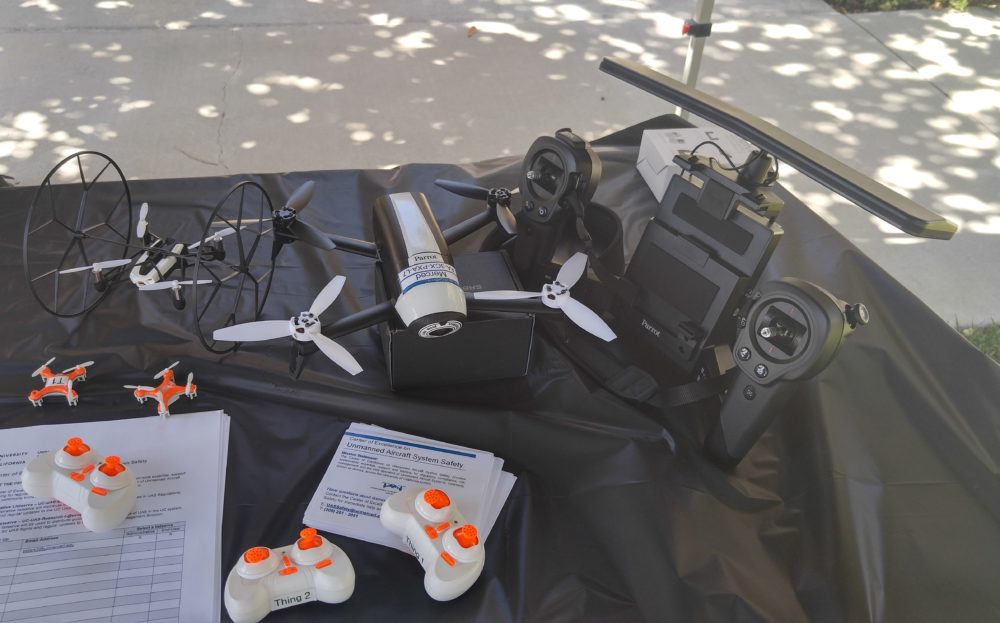Posted by Alison Spencer, UCB Student Intern, UCOP. Drones have emerged in recent years as an exciting information-gathering tool. At UC Merced’s newly established UC Center of Excellence on Unmanned Aircraft Systems Safety, director Brandon Stark and his team work to keep the University of California at the forefront of safe, responsible, and innovative drone usage.
Applications in Research and Recreation
Before joining the Center of Excellence, Stark and his three student assistants (John Abad, Alexus Garcia, and Chris Reps) all worked at UC Merced’s Mechatronics, Embedded Systems and Automation (MESA) lab. “At MESA, they’ve used drones to render digital environments,” explained Abad. “That way, people can see what a place looks like without going there.” Additionally, unmanned aircraft have aided in agricultural research. “The lab used drones to survey farmers’ crops, using aerial imagery to check growth rates and health,” said Garcia.
Merced students have also caught on to drones’ recreational capabilities. In the sport of drone racing, competitors navigate through obstacle courses at high speeds, wearing goggles that relay video from the vehicles’ attached cameras. Already, contests such as the recent World Drone Prix in Dubai have attracted international entrants, who competed for a $250,000 grand prize. “Students here are trying to start competitions with other California schools and be founders of college-level racing,” Reps said.
A Comprehensive Fleet Management Solution
With staff and students increasingly operating drones on campuses, the center promotes safety and compliance with UC policy. One important project is the development of a fleet management solution in collaboration with UC Risk Management Services at UC Davis.
The tool will be released as a web application and aims to track the number and activities of drones across the UC system. First, pilots will input data on their crew and proposed path. Once the center approves the flight, the pilot will receive notice from the FAA on weather conditions, preflight checklists, and regulations to keep in mind. Afterwards, the system will save a flight log. “The system is sort of like a backend database, to keep track of who’s doing what. The goal is to make it simple for users to fly drones safely,” explained Garcia.
Education
In the meantime, a large part of the student assistants’ work revolves around educating the public. As a reporter for the center’s website, Garcia highlights the positive outcomes of drone operations, and Reps contributes to the center’s social media presence.
The center also gathers useful information for university researchers. “I’m specifically working on international law. That way if anyone decides they need to do research in other countries, we can give them guidelines,” said Abad. In his research, he discovered some countries still have reservations about drones, or lack clear guidelines about their legality. But with time, more and more are recognizing their applicability and usefulness. Overall, he said, “The future is coming, and people are getting used to it.”

